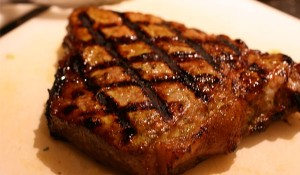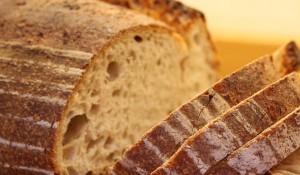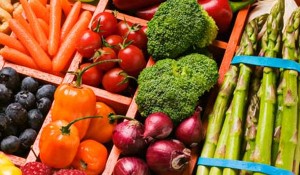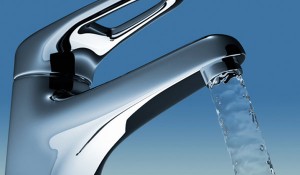Carbs, Fats And Protein: What You Really Need To Know
Carbohydrates, fats and proteins are macronutrients. Macronutrients are nutrients which supply energy to the body and are required for growth, metabolism and biomechanical bodily functions. Remember the term ‘macro’ means large, so macronutrients are needed in large amounts. The big three macronutrients are protein, carbohydrates and fat. The usual make-up of macronutrients is between 4-9 calories per gram which helps fuel your body’s system. Your body needs these three elements, so omitting one from your diet or regime could have disastrous consequences on your body and health.
Your body needs to balance the macronutrients with the micronutrients (vitamins and minerals). Your body needs both but the macro/micro balance is important to remember and follow. This exploration also need to focus on hydration and the role of water in helping the human body function correctly. Let’s explore the differences between macronutrients and micronutrients in order to help define a solid dietary regime.
The Macronutrients
What is Protein?
Your diet or regime should consist of about 10-35% of protein. Your body needs protein for growth (which is especially important for children, teenagers and pregnant women) (Kitts et al, 1994: p872-879). The functions of protein are variable. The primary function of protein is to help repair tissue, strengthen your immune system and make the essential hormones and enzymes your body needs to function. Protein also acts as a form of energy when carbohydrates are present with the system. Protein is found in meat, poultry, fish, cheese, milk, nuts and vegetables.
If you workout or are bodybuilding then protein will be central to your regime. Your body will need protein to help build, maintain and repair the body’s tissue in order to strengthen your body’s immune system and biomechanical structure. Some researchers claim protein shakes can help improve biomechanical responses. The research claims the use of shakes over traditional meals, in supplementary terms, has in case studies improved protein-intake of bodybuilding participants (Sparkes et al, 2004, p887).
What is Fat?
Fatty foods are bad for you! It’s a common and oft-used argument against including fats in your diet. They are correct in so far as a diet base predominantly on fatty foods will have negative consequences. However, fats are a necessary for human bodily functions. Researchers claim that around 20% of your diet or regime should consist of fats (Gillard, 2009: p1212). It is important to remember that there is such a thing as a ‘good’ and a ‘bad’ kind of fat and you need to know the differences. The ‘bad’ fats are Trans fats or saturated fats – these are evident in fast food or packaged foods. The ‘good’ fats are Omega 3 and 6 – which are evident in fish and nuts. So you need to focus on what you are eating by changing from trans fats to omega 3-based fats your diet will improve and so will your intake of fats. This can be done by switching your daily treat from a chocolate snack to a bag of nuts.
Your body needs fats. The main role fat performs is protection as it protects your vital organs and also insulates the human body. Fat is also necessary in promoting biomechanical growth and development at both a cellular and biological level. Fat also has another key role: it helps break down vitamins – A, D, E and K – which are fat soluble which means they need fat to break down and help the human body. Researchers claim “fats are responsible for the biomechanical supplementation of key vitamin requirements during exercise” (Paulson et al, 2010: p1021). Therefore, if your bodybuilding or working out you’ll need to think about the kind of fats you’re allowing into your body as the right kind of fats can help improve your exercise regime.
What are Carbohydrates?
Carbs are the primary fuel of the human body. Carbohydrates are sugars that dissolve and become glucose. Glucose is one of the most essential ingredients a human body needs or requires. Researchers claim your diet should consist of at least 40 to 60 percent carbohydrates (Handy, 1990: p292). Glucose is the preferred source of energy for the human brain, heart and central nervous system. In an age of ‘low-carb’ fad diets it is important to understand the centrality of carbohydrates and therein glucose in helping the human body to function. Good bodily glucose control, according to researchers, is only evident when a dietary regime is underpinned by a balanced provision of carbohydrates (Miller et al, 2011: p388).
Carbohydrates are usually found in foods like pasta, potatoes and rice. These foods also contain higher levels of fibre – fibre is important because it cannot be digested from you body and as such aids the intestinal process of distributing and expelling human waste. These types of food also help lower cholesterol which will improve bodily health. The presence of fibre, glucose and cholesterol-lowering attributes mean carbohydrates are essential to the maintenance of healthy biomechanical and biological operation.
The Micronutrients
What are Minerals?
There are many different kinds of minerals however for dietary needs we are looking at essential minerals like calcium or iron. They are central to a healthy and safe diet. Minerals are predominantly found in foodstuffs like bread, meat, milk, fish and vegetables along with dairy products. Minerals are necessary for three main functions: the construction of health teeth and bones, helping to control bodily fluids inside and outside of the human body – from cell level to skin level, and finally help to turn the food you eat into energy – minerals help break down carbohydrates and turn the sugars into glucose.
What are Vitamins?
The body requires the presence of two distinct types of vitamins. They include water soluble and fat soluble vitamins. The body does not require the intake of too many fat-based vitamins – like Vitamin A, D, E or K – as they are stored predominantly in the liver and fatty tissue areas of the body for future use. Therefore you need to be careful when consuming products with fat soluble vitamins.
However, water soluble vitamins – like Vitamin C, B and folic acid – are not stored in the human body so you need to take them in more frequently. The body will dispose of excess vitamins through your urine as the body cannot store water-soluble vitamins. Researchers have claimed that water-soluble vitamins are not necessarily harmless in large amounts (Cecil, 1992: p1921-28). Water-soluble vitamins are usually present in fruit, grain and vegetables.
What are Trace Elements?
Another important form of nutrient is trace elements – like fluoride or iodine – which are essential nutrients that the human body requires for functional biomechanical operation. However, the body only requires these elements in incredibly small amounts, compared to vitamins and minerals. Trace elements are found predominantly in fish, meats, cereals, dairy and vegetables and nuts. Researchers claim “rudimentary trace elements, like fluoride, work with minerals, like calcium, to strengthen human dental structures” (Lewaard, 2007: p2128).
Hydration
Water is the important member in the nutrients equation. Without water many functions could not be performed. The sugar in carbs that dissolves into glucose could not occur without water, minerals which help the growth of bones and teeth could not work without water. Each and every example requires, in some way, shape or form, the presence of water. Researchers claim that 4 to 6 glasses of water are enough to help the human body undertake the correct biomechanical form of a healthy human body (Meinenhoff et al, 2010: p1293).
The body requires a synergy of macro, micronutrients and hydration to fully balance the bodily requirements in order to function correctly. Therefore, we need to understand that balance and inclusion, over exclusion, must be a central theme in any dietary regime. If you want to build muscle or loose weight you need to think about your food in a more balanced and generalist approach. You need to think about carbohydrates, protein and fats along with vitamins, minerals and trace elements whilst always balancing these requirements with your hydration needs. This balance will help you find the right kind of dietary regime for your purposes – be it weight loss, weight gain or even weight management.
Conclusion
This article has identified the good and the bad. These pointers can help any individual re-examine their dietary needs – you need fats, carbs and water. So don’t follow silly fads like no-carb or water-based diets.
You need macro and micronutrients along with water to make sure your body works the way it should. So start planning – maybe create a diet and workout journal and start evaluating what you are eating.
From this you can look at what needs changing and from that you can develop a healthy, fully-rounded, diet that will synergise the macro, micronutrient and water-based requirements of the human body into a fun and enjoyable diet that’s fun to eat!





